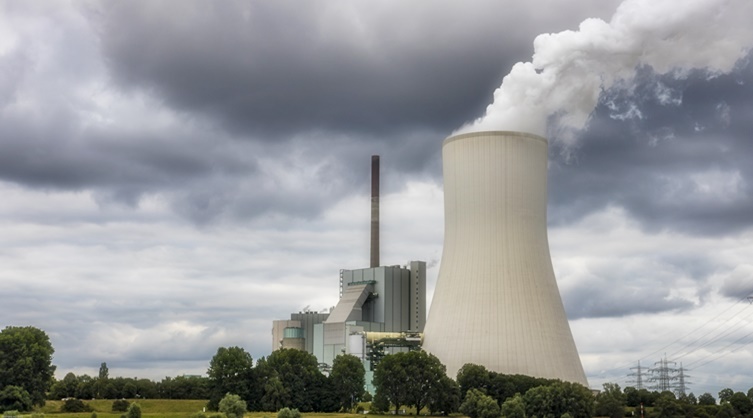Adani Power supplies competitive thermal power to Bangladesh
By EPR Magazine Editorial April 18, 2023 4:26 pm IST
By EPR Magazine Editorial April 18, 2023 4:26 pm IST

Bangladesh’s industry will benefit greatly from Godda Power’s contribution to increased competitiveness. First 800 MW unit of the two 800 MW units of the ultra-super critical thermal power plant begins delivering 748 MW of power to Bangladesh.
Adani Power Limited (APL), a part of the diversified Adani Group, announces the commissioning of its first 800 MW ultra-super-critical thermal power producing station at Godda in the Jharkhand district of India and begins supplying 748 MW of electricity to Bangladesh. Godda’s electricity will replace expensive power generated from liquid fuel, reducing the average cost of power purchased and significantly improving the situation in the neighbouring countries.
“The Godda Power Plant is a strategic asset in the India-Bangladesh’s long-standing relationship. It will ease the power supply in Bangladesh, making its industries and ecosystem more competitive. It is going to be the most efficient and environment-friendly thermal power plant installed in India and entire South-East region, and also one of the best in class in the world. It is the first power plant in the country which has started its operations from day one with 100 percent flue gas desulfurization (FGD), SCR, and zero water discharge.” said SB Khyalia, CEO, Adani Power Limited.
With the aim to purchase 1,496 MW net capacity of power from a 2X800 MW ultra-supercritical power project at Godda, the Bangladesh Power Development Board (BPDB) signed a long-term Power Purchase Agreement (PPA) with APL’s wholly-owned subsidiary Adani Power Jharkhand Limited (APJL) in November 2017. The second 800 MW unit from India’s largest private power producer is anticipated to be put into service soon.
One of the largest liquid fuel-based power production facilities in the Indian subcontinent is found in Bangladesh. Around 6,329 MW of installed capacity comes from heavy fuel oil (HFO)-based plants, while 1,290 MW comes from high-speed diesel (HSD)-based plants, for a total installed capacity of over 7,600 MW. The total tariff of HFO-based plants is approximately BDT 22.10/kWh (USC 21/KWh), and the total tariff of HSD-based power plants is approximately BDT 154.11/kWh (USC 149/KWh), both of which are significantly higher than the tariff of Godda Power Plant (the energy cost is estimated to be around 9 cents/KWh), according to BPDB’s annual report for the financial year 2021–2022.
The total tariff of the Godda TPP is competitive when compared to peers, despite the fact that Bangladesh currently has long-term PPA relationships with three other imported coal-based plants.APL’s announcement on the Bombay Stock Exchange READ on Friday that Unit 1 of the 800 MW capacity of the 2×800 MW ultra-supercritical power project of Adani Power (Jharkhand) Limited (“APJL”), situated in Godda district in Jharkhand, has achieved commercial operations. APJL, a wholly-owned subsidiary of Adani Power Limited, will supply power under a 25-year Power Purchase Agreement (“PPA”) for a corresponding net capacity of 748 MW from Unit 1 to the Bangladesh Power Development Board. Pursuant to the above, APJL has started processing its claims under the PPA with effect from April 6, 2023.
APJL had successfully synchronised the first unit with the power grid of Bangladesh on November 29, 2022, through a dedicated transmission line from Godda to Bangladesh in the presence of representatives from the government of Bangladesh, despite a number of obstacles, including the unprecedented COVID-19 waves. The necessary transmission evacuation system was subsequently put into operation on the Bangladesh side in March 2023. As a result, on March 20, 2023, APJL synchronised unit 1 again. On April 5, 2023, the reliability run test, which included commercial operation tests, was finished in the presence of representatives from BPDB’s competent authority and the Power Grid Corporation of Bangladesh (PGCB).
The Godda Power Plant consists of two units of the most advanced technology now in use, known as “Ultra Super Critical Technology,” which uses the most up-to-date methods for regulating emissions and coal and water usage. The plant has been equipped with flue gas desulfurization (FGD) and selective catalytic reduction (SCR) to reduce emissions and comply with the most recent environmental standards set by the Ministry of Environment, Forest and Climate Change (MoEF). With respect to functioning under the most recent environmental emission standards, this plant will be distinct in Bangladesh and India.
We use cookies to personalize your experience. By continuing to visit this website you agree to our Terms & Conditions, Privacy Policy and Cookie Policy.